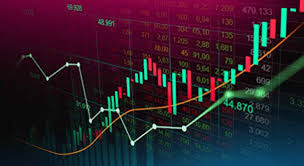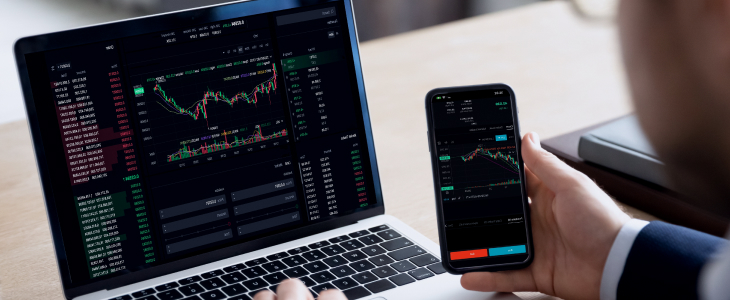Mastering Forex Trading Strategies for Success 1805978875
Posted on October 27th, 2025 by admin in traiding1 | No Comments »

The world of forex trading acev.io presents unparalleled opportunities for individuals looking to engage in global financial markets. As one of the most liquid and traded markets in the world, forex trading allows participants to buy, sell, exchange, and speculate on the value of currencies. This intricate and dynamic field attracts traders from all walks of life, from novices to seasoned professionals, each eager to expand their knowledge and enhance their trading skills. In this article, we will delve into various aspects of forex trading, including strategies, tips for success, and common pitfalls to avoid.
Understanding Forex Trading
Forex, short for foreign exchange, is the market where currencies are traded. It is the largest financial market globally, with a daily trading volume exceeding $6 trillion. Unlike stock markets, which are traded in specific exchanges, the forex market operates 24 hours a day, allowing traders to engage in transactions at virtually any time.
Currencies are traded in pairs, such as EUR/USD or USD/JPY. The first currency in the pair is the base currency, while the second is the quote currency. The exchange rate between the two indicates how much of the quote currency is needed to buy one unit of the base currency. Understanding these fundamentals is crucial for any trader looking to make informed decisions.
The Importance of Education
Education is key in forex trading. Aspiring traders must familiarize themselves with various aspects of the market, including terminology, trading platforms, and analysis techniques. This foundational knowledge helps traders develop strategies tailored to their risk tolerance and trading objectives.
Numerous resources are available to assist traders in their educational journey. Online courses, webinars, and trading forums offer valuable insights and support. Additionally, many brokers provide demo accounts, allowing traders to practice without risking real money. This experience is invaluable for building confidence and honing skills.
Technical Analysis Vs. Fundamental Analysis

In forex trading, analysis is essential for making informed decisions. There are two primary types of analysis: technical and fundamental. Technical analysis focuses on price movements and historical data, using tools like charts and indicators to identify patterns. Traders analyze trends, support and resistance levels, and momentum to predict future price movements.
On the other hand, fundamental analysis examines economic indicators, geopolitical events, and other factors that influence currency values. Traders assess interest rates, inflation, and economic growth to understand the broader market context. Combining both analysis methods can provide a more comprehensive perspective and improve trading decisions.
Developing a Trading Strategy
A well-defined trading strategy is crucial for success in forex trading. Traders should determine their goals, risk tolerance, and preferred trading style. Common trading styles include day trading, swing trading, and position trading. Each style involves different timeframes and strategies, requiring traders to find the approach that aligns with their personality and availability.
Once a trading style is established, traders should identify specific entry and exit criteria. This could involve aspects like price levels, indicators, or patterns. Implementing a risk management plan is equally vital, as it helps minimize potential losses. Successful traders prioritize risk-to-reward ratios, ensuring they only risk a small percentage of their trading capital on each trade.
Managing Emotions
One of the most significant challenges traders face is managing their emotions. Fear and greed can cloud judgment and lead to impulsive decisions. Developing discipline and maintaining a clear mindset is essential for successful trading.
Many traders benefit from keeping a trading journal, where they can log their trades, emotions, and thoughts. This practice helps individuals reflect on their decision-making process, learn from mistakes, and recognize patterns in their behavior. Emotional self-awareness is a powerful tool for improving overall trading performance.

The Role of Technology in Forex Trading
The advent of technology has revolutionized forex trading in recent years. Traders now have access to advanced tools, software, and platforms that facilitate better decision-making and execution of trades. Algorithmic trading, for example, uses computer programs to analyze market data and execute trades based on predefined criteria.
Additionally, mobile trading apps have enabled traders to participate in the forex market on the go. Staying connected and informed is crucial, as market conditions can change rapidly. Today, having the right technology plays a crucial role in a trader’s success.
Avoiding Common Pitfalls
While forex trading offers tremendous opportunities, it is essential to be aware of common pitfalls that traders face. One of the most prevalent mistakes is overleveraging. While leveraging can amplify profits, it can also lead to significant losses. Traders should use leverage carefully and ensure they fully understand its implications.
Another common issue is trading without a clear plan. Impulsive trading, often driven by emotional responses or market noise, can lead to costly mistakes. A disciplined approach, grounded in a well-thought-out strategy, is essential for long-term success.
Conclusion
Forex trading is a complex yet rewarding endeavor that offers numerous opportunities for profit. By investing time in education, developing a solid trading strategy, and practicing emotional discipline, traders can navigate the intricate world of forex with confidence. The journey may be fraught with challenges, but with dedication and the right resources, success is achievable in the exciting world of forex trading.




